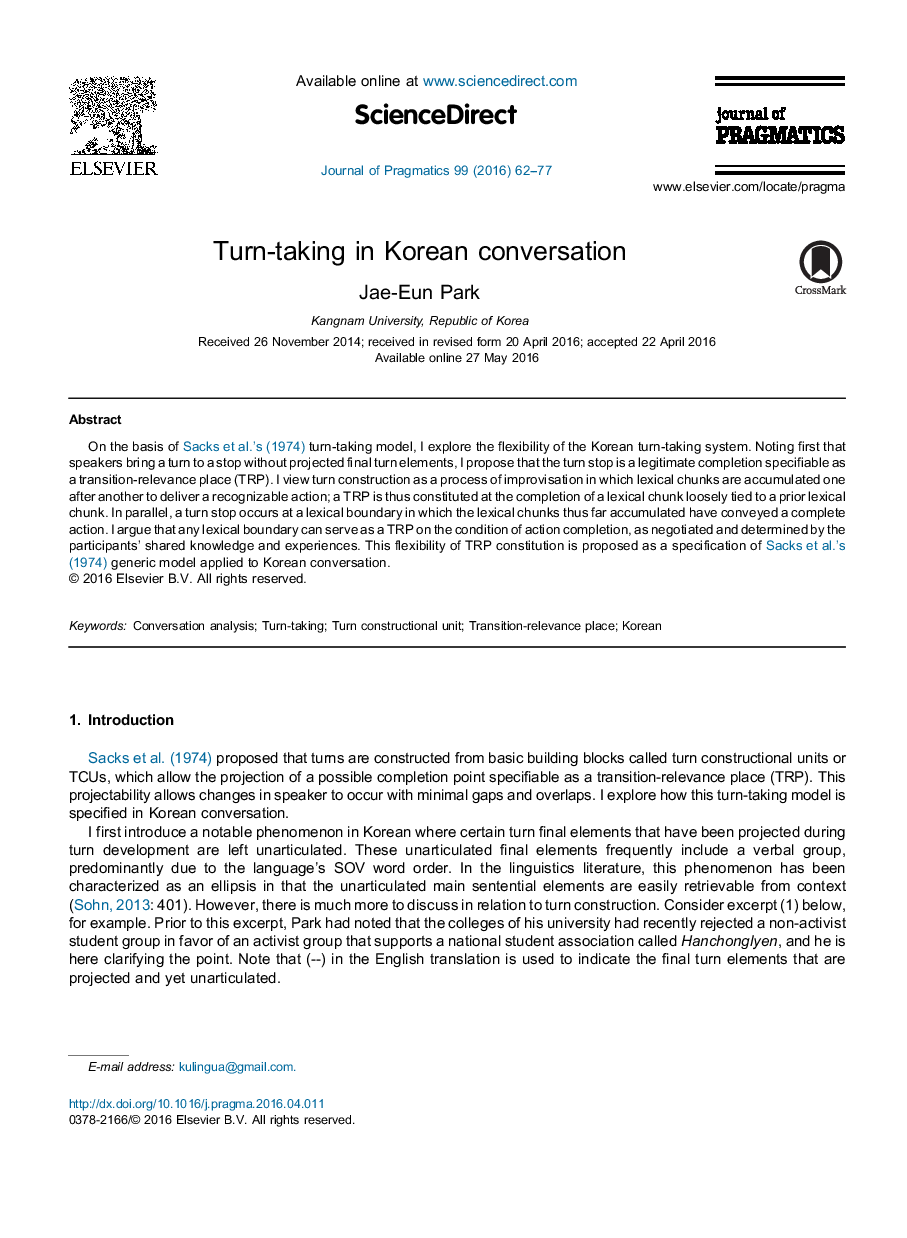| Article ID | Journal | Published Year | Pages | File Type |
|---|---|---|---|---|
| 932467 | Journal of Pragmatics | 2016 | 16 Pages |
•This paper explores flexibility in the Korean turn-taking system.•Speakers bring a turn to a stop without projected final elements.•Turns are improvised bit by bit toward a recognizable action.•Any lexical boundary can serve as a TRP upon completion of a recognizable action.•TRPs are negotiated between speakers based on shared knowledge.
On the basis of Sacks et al.’s (1974) turn-taking model, I explore the flexibility of the Korean turn-taking system. Noting first that speakers bring a turn to a stop without projected final turn elements, I propose that the turn stop is a legitimate completion specifiable as a transition-relevance place (TRP). I view turn construction as a process of improvisation in which lexical chunks are accumulated one after another to deliver a recognizable action; a TRP is thus constituted at the completion of a lexical chunk loosely tied to a prior lexical chunk. In parallel, a turn stop occurs at a lexical boundary in which the lexical chunks thus far accumulated have conveyed a complete action. I argue that any lexical boundary can serve as a TRP on the condition of action completion, as negotiated and determined by the participants’ shared knowledge and experiences. This flexibility of TRP constitution is proposed as a specification of Sacks et al.’s (1974) generic model applied to Korean conversation.
